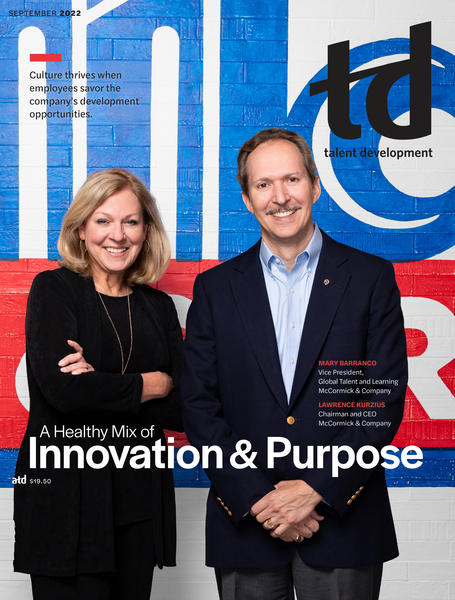TD Magazine Article
Promote and Retain
Research shows that companies could retain employees by offering career development opportunities, including lateral job moves.
Thu Sep 01 2022

During the past few years, employees' expectations regarding their relationship with employers have drastically shifted. To examine what's working and what needs to change, Eightfold surveyed more than 250 HR and talent leaders and nearly 1,000 employees and found that many organizations are trying to stretch pre-pandemic methodologies to fit postpandemic realities.
In The Future of Work: Intelligent by Design, Eightfold explains that during the height of the pandemic, talent and HR teams were forced to act as go-betweens for organizations and workers. The perception is that they spent more time relaying new guidelines about where, when, and how employees would interact, for example, than helping workers meet career goals. In response, employees' priorities shifted, with increased value on transparency, flexibility, and having the power to seek out growth opportunities.
According to the survey, seven in 10 employees want their employers to have a transparent promotion and career development process. The data suggests that, above all else, workers are looking to move—and not just upward but also laterally. For the most part, employees seek more opportunities to transition into new roles or areas within the company and greater visibility into different career path options. Half are looking for ways to work on projects outside of their existing role.
While two-thirds of HR leaders rated internal mobility as highly effective, the findings show it's likely highly selective. Less than half of respondents said their organizations provide opportunities for promotions to everyone, and just one-third create obvious paths for lateral moves into new functions or roles within the business.
"This is a huge missed opportunity to tap internal talent, promote from within, and increase retention," Eightfold asserts. The report notes that it's time for companies to democratize learning and advancement opportunities for everyone. And employees are willing to do the work necessary to grow. Most surveyed workers said visibility into their current skill set is important and said they also want the same for skills gaps or future skills needs.
"Employees have high expectations when it comes to securing their futures and are often eager to learn more and take on new challenges," the report states. "It's important that employees see a future for themselves at any organization—even in an entirely different role or function—so they don't look elsewhere. By empowering employees to learn new skills, an organization will be much more resilient."

